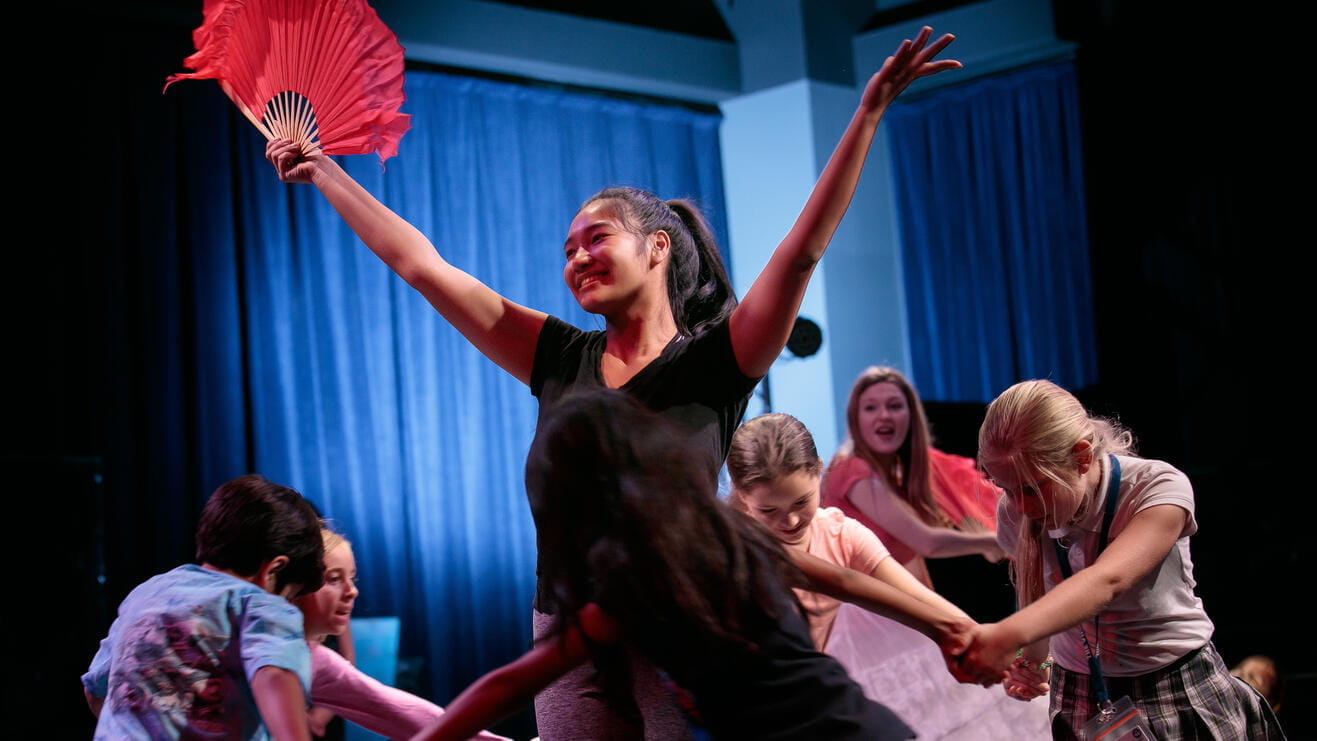“YOU ARE LEARNING CREATIVITY, COLLABORATION, AND CONFIDENCE, AND IT’S THOSE TRANSFERRABLE SKILLS YOU CAN TAKE TO ANY SUBJECT, SO THAT WHEN YOU LEAVE SCHOOL YOU ARE A WELL-ROUNDED INDIVIDUAL WHO CAN TACKLE ANYTHING SENT YOUR WAY.”
Gaynor Lowe, Head of Year 9 and PE Teacher, The British International School, Abu Dhabi
The performing arts should play a key role in your child’s education. In many findings, researchers are linking the study of performing arts to better child development and higher academic achievement.
Creativity and Innovation
Creating, interpreting, and improvising are at the core of the Juilliard-Nord Anglia Performing Arts Program. Through the study of music, dance, and drama (which encourage experimentation, occasional failure, lateral thinking, and more) students can stretch or surpass the boundaries of traditional education. Every experience in the classroom, studio, or theatre teaches students to act independently and use their bodies to create and innovate in the moment.
Self-confidence and Presentation Skills
Through the performing arts, children learn to communicate effectively and connect with others intellectually and emotionally. With performance and repetition, children acquire skills such as poise, focus, and overcoming anxiety, best preparing them for presenting, communicating, and leading.
A Medium for Self-Expression
The performing arts can encourage your child to explore their emotions, expanding their imagination and helping them develop their own, unique voice. Each discipline — music, dance, and drama — engage a child’s brain, body, and emotions to encourage their confidence and to discover joy in self-expression.
Empathy and Compassion
Performing arts help students to learn the crucial skill of understanding diverse points of view, which helps them to learn empathy and compassion for others. Experiences — such as embodying character, portraying an emotion physically, or singing another person’s lyrics — illustrate how music, dance, and drama each accomplish this in a different way.
Cultural Awareness and Appreciation
Learning to appreciate and engage in music, dance, and drama from different cultures, communities, and traditions is an important component in helping your child develop into a global citizen.
Physical and Personal Development
Alongside physical education, the performing arts help children with body control, awareness, and fitness, encouraging positive lifestyle choices and inculcating the habits of health and well-being.
Improved Academic Outcomes
Several findings, including NAE’s globally-conducted pupil survey and parent survey, demonstrate that children studying music, dance, and drama are more proficient in reading, writing, and mathematics.
In countries with students that rank highly in these subjects — such as Japan, Hungary, and the Netherlands — arts and music education form a mandatory part of a school’s curriculum. Other studies show that children exposed to all three performing arts are happier, more engaged, and enjoy going to school — all of which contribute to their future success.
.jpg?h=481&iar=0&w=1440&rev=85853bd2a0a74b00ad8506e63ffd6c94&hash=3A9AF92A150AC6507C09D3E4FF9E8409)
